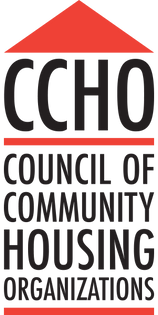“Debate Rolls On Over Development Impact Fee ‘Sweet Spot’ for Muni”
SF Examiner, September 29, 2015
San Francisco’s debate over a proposed fee on development to generate millions of dollars annually for Muni and other transit needs rolled on Monday, as a vote on the proposal was postponed by a Board of Supervisors’ committee.
With millions of dollars at stake, it’s no wonder major players in both development and transit attended Monday’s Board of Supervisors Land Use and Economic Development Committee.
Outstanding issues remain whether to increase the proposed impact fee, by how much, and if it should be a tiered structure with larger developments paying more. It could mean the difference of generating $14 million a year for Muni or more than $20 million.
Developers, business advocates, nonprofit hospitals representatives, transit and bicycle advocates, along with heads of the Planning Department John Rahaim and head of the San Francisco Municipal Transportation Agency Ed Reiskin, were all on hand for the meeting.
Transit advocates are seeking a higher fee, would like to change the criteria to capture more development and want parking spaces to count toward the payment calculation.
Nonprofit hospitals, worried about not being exempted from the fee, turned out to seek exemption status as developers warned a fee increase could chill housing development.
Some political lines were drawn in the sand. Supervisor Scott Wiener, for example, said he was supportive of an exemption for nonprofit hospitals. Meanwhile Supervisor John Avalos said he wanted to tie the exemption to a charitable care percentage.
The proposed impact fees would generate about $14 million annually. The per square-foot fee for residential would be $7.74, nonresidential $18.04 and $7.61 for production, distribution and repair.
Wiener said he was open to increasing the fee. One proposal from Avalos would keep the fee at $7.74 for residential developments between 21 and 50 units but increase it to $8.98 for developments between 51-99 units and impose a $10.21 fee for developments with more than 100 units. The city’s nexus study found that transit impacts caused by development could justify a residential fee, for example, of $30.93. No one is calling for that maximum amount but more like 33 percent of that fee.
Well-known developer Oz Erickson said the current city fees are already high and cautioned about increasing costs, suggesting it could slow down housing development. “We are paying $114,000 per unit of impact fees. We accept the idea of the [transit impact fee] as it is proposed. I would strongly urge you not to increase it. We are right on the edge,” he said.
Peter Cohen, co-director of the Council of Community Housing Organizations, said he along with transit advocates believe there is room for an increase without adversely impacting development. “We could get up to $31 million if you use the 33 percent recommendation from the [planning] commission,” Cohen said. “This is really about the revenue that it takes to have a gracefully growing city and we should find that sweet spot but it should be pushed as high as possible.”
The board’s land use committee will discuss the proposal again on Monday.
jsabatini@sfexaminer.com
